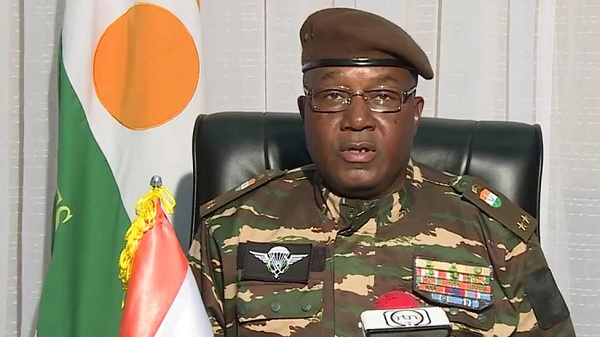
The capture of political power by Niger’s military junta has triggered speculation about the possibility of a regional military intervention.Niger is a landlocked West African country that remains one of the poorest in the world; it also faces a growing threat, particularly in its Tillabéri region, from violent extremist groups such as Boko Haram and the Islamic State in the West African Province (ISWAP), which have caused many deaths and mass displacement.
The putschists in Niger, led by Gen. Abdourahamane Tchiani, have capitalized on this insecurity in their bid to justify their illegal, unconstitutional overthrow of Nigerien President Mohamed Bazoum’s government, which was barely three years old. Niger has experienced several military coups since its independence from France in 1960—but this one is eliciting a stronger regional reaction.
Concerned about the unfolding situation in Niger, the Economic Community of West African States (ECOWAS) has risen to the challenge. On July 26, the regional body’s Authority of Heads of State and Government convened an Extraordinary Summit to discuss the political situation in Niger, under the chairmanship of Nigerian President Bola Ahmed Tinubu. In describing the gravity of the situation, Tinubu called the coup a “hostage” situation, a position Bazoum himself reiterated in his recent op-ed in the Washington Post, calling on the United States and the international community to come to his rescue.
A perceived security threat along the Niger-Nigeria border is making leaders in Abuja and other regional capitals nervous, and might influence their decision to take action. But some of ECOWAS’s recent moves to pressure the junta in Niger’s capital, Niamey, could have unintended consequences.
There are doubts about whether the military junta in Niger will be able to effectively control its porous borders. After all, Niger has not been able to do so in the past. But ECOWAS’s hardnosed stance overlooks the fact that controlling the borders is even less likely in a situation in which humanitarian and foreign aid has been cut off. The consequences of unmonitored borders will be increased infiltration by terrorists across the border into Nigeria.
The nefarious activities of jihadist insurgencies across the troubled Sahel region have resulted in the influx of 300,000 refugees from Mali to Niger. That number is expected to increase significantly, with most likely to flee to Nigeria and other neighboring countries in the event of a full-scale armed conflict.
In such a scenario, Nigeria would not sit idly by, especially when it is dealing with multiple internal security threats of its own. There is also the possibility that Chad, which also has a strong army, might be inclined to intervene alongside Nigeria on security grounds. But so far, it appears that Chad is willing to give diplomacy a chance.
ECOWAS has dispatched envoys to Niger as part of efforts to explore a peaceful and diplomatic resolution to the situation. The Monday deadline for the regional body’s ultimatum, which threatened armed intervention, has passed.
In the meantime, diplomacy involving current and former military leaders continues, including a visit to Niger by the leader of the transitional government of Chad, Mahamat Déby.
So far, these efforts appear to have fallen on deaf ears, with the putschists remaining adamant and severing ties with France, Nigeria, Togo, and the United States. ECOWAS has since begun preparations for military intervention, albeit as a “last resort.”
As the window for a peaceful and diplomatic resolution closes, a military intervention appears to be increasingly inevitable. It would not be the first time ECOWAS has embarked on a military intervention within the region.
ECOWAS intervened during the Liberian and Sierra Leonean civil wars in the early 1990s, on humanitarian grounds, as well as in more recent times in Gambia, following the refusal of then-President Yahya Jammeh’s reluctance to hand over power to Adama Barrow, who emerged as the winner of the elections in 2017.
These military interventions resulted in the restoration of peace, security, and stability in these countries and across the region. More importantly, they were welcomed by the citizens of these countries who saw the intervening forces as their saviors at the time.
However, the current realities are different. A first major impediment to a successful regional military intervention in Niger is the absence of ECOWAS’s full-scale legitimacy among the citizens of Niger. Following the coup, some Nigeriens have taken to the streets in demonstration of their support for the putschists.
For as long as a significant portion of Nigerien society backs its new rulers, a foreign intervening force will struggle to win the hearts and minds of locals on the ground. The fluid nature of the situation could mean the absence of a comprehensive exit strategy or transition plan, thereby giving way to a prolonged intervention.


